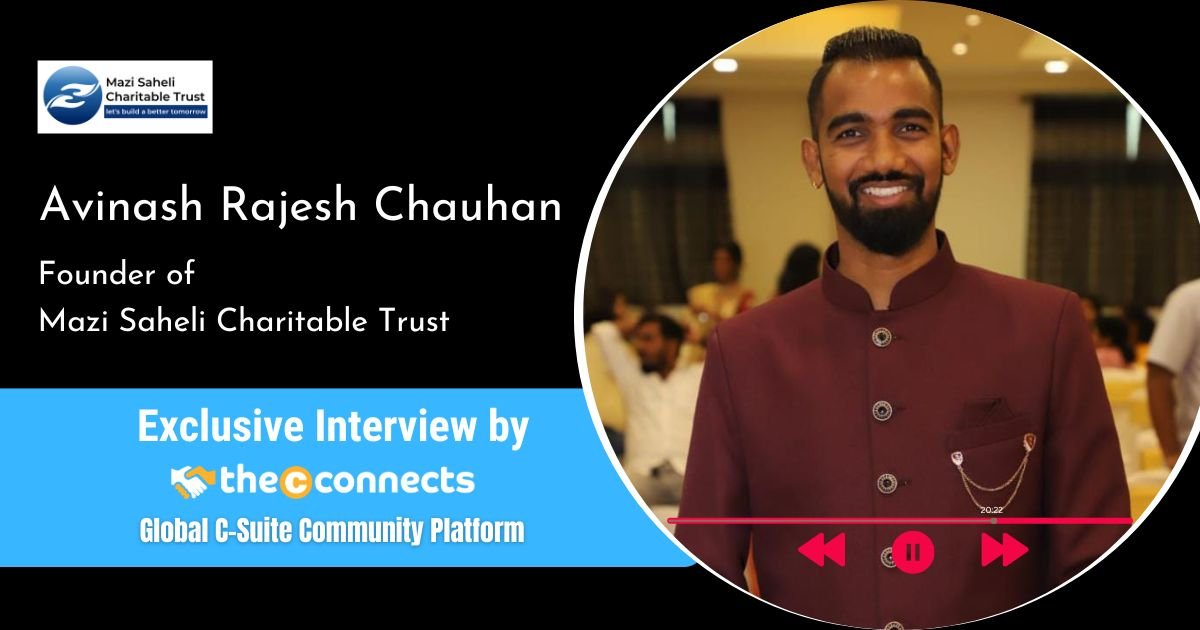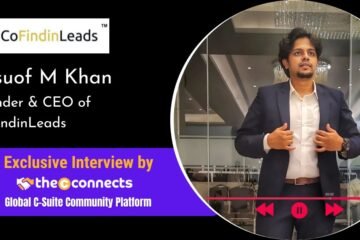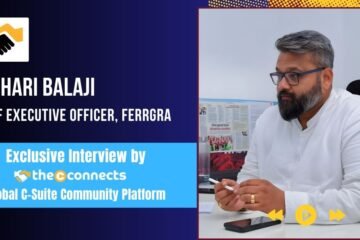TheCconnects: Avinash, it’s an honor to sit down with you today. Your work with Mazi Saheli Charitable Trust has been making waves in rural Maharashtra. Can you walk us through your journey and how you founded this impactful organization?
Avinash Chauhan: Thank you for having me! My journey into social impact wasn’t a straight line. I grew up in Mumbai, witnessing the stark contrast between urban affluence and rural struggles. Early in my career, I worked in various sectors, but I always felt a pull toward addressing systemic inequities. In 2023, I founded Mazi Saheli Charitable Trust with a vision to empower rural and tribal communities, particularly women, through education, healthcare, and sustainable livelihoods. The spark came from a visit to a village in Ratnagiri, where I saw children with potential but no access to quality education. That moment lit a fire in me to create a platform for lasting change. Since then, we’ve grown, launching initiatives like the Panchnadi Learning Center and free eye care camps and Health care, impacting thousands of lives.
TheCconnects: That’s inspiring. Who would you say has been the most influential figure in shaping your vision and leadership style?
Avinash Chauhan: My mother has been my greatest influence. She was a school teacher who dedicated her life to educating underprivileged children. Her resilience and belief that every individual deserves a chance to thrive shaped my worldview. She taught me that change begins with empathy and action, not just ideas. Her ability to connect with people, regardless of their background, is something I strive to emulate in my work with Mazi Saheli.
TheCconnects: That’s beautiful. Let’s talk about challenges. Building a non-profit in rural India can’t be easy. What are some of the biggest hurdles you’ve faced, and how did you overcome them?
Avinash Chauhan: The challenges are many, but I’ll highlight two. First, gaining trust in rural communities was tough. People are often skeptical of outsiders promising change. We overcame this by working closely with local leaders and involving communities in every step of our projects, like the Panchnadi Learning Center, where villagers actively participated in the planning. Second, funding is always a hurdle. Non-profits rely on grants and partnerships, which can be unpredictable. We tackled this by diversifying our funding sources, collaborating with CSR initiatives, and building a transparent track record that attracts support.
TheCconnects: Transparency and collaboration seem central to your approach. What key lessons have you learned from your work in the social sector?
Avinash Chauhan: One lesson is that sustainable change requires listening more than speaking. Every community has unique needs, and assuming you know the solution without their input is a recipe for failure. Another lesson is the power of small wins. Grand visions are important, but celebrating milestones—like a child passing a scholarship exam or a woman gaining financial literacy—keeps momentum alive. Finally, resilience is non-negotiable. Setbacks, like bureaucratic delays or resource shortages, are part of the journey. Staying focused on the mission keeps you grounded.
TheCconnects: Those are powerful insights. Shifting gears, as a social impact strategist, how do you see the digital space impacting organizations like yours?
Avinash Chauhan: The digital space is a double-edged sword for non-profits. On one hand, it’s a powerful tool for storytelling and fundraising. Platforms like social media allow us to share stories of impact, like our eye care camps that restored vision for 146 people last year, and connect with donors globally. On the other hand, the noise in the digital world is a challenge. Standing out amidst countless causes requires authenticity and consistent engagement. Many non-profits struggle with limited digital expertise, so we’ve invested in training our team to leverage tools like LinkedIn and Instagram effectively.
TheCconnects: Speaking of impact, how does Mazi Saheli address the specific pain points of the communities you serve?
Avinash Chauhan: Our approach is rooted in addressing systemic gaps. For instance, rural women often lack access to financial literacy, which limits their independence. We run workshops teaching budgeting, savings, and entrepreneurship, empowering them to start small businesses. In education, we tackle the lack of quality learning spaces by setting up centers like Panchnadi, where students access modern tools and mentorship. In healthcare, our free eye camps address preventable blindness, a major issue in rural areas. Each program is designed after deep community consultation to ensure it’s relevant and sustainable.
TheCconnects: That’s a holistic approach. What do you think is the biggest challenge for non-profits in amplifying their impact today?
Avinash Chauhan: Beyond funding, I’d say it’s scaling impact without losing the human touch. As organizations grow, there’s a risk of becoming bureaucratic or disconnected from the ground. At Mazi Saheli, we prioritize staying embedded in the communities we serve. Another challenge is measuring impact in a way that resonates with stakeholders. Donors want data, but communities want stories of change. Balancing both—quantitative metrics and qualitative narratives—is critical.
TheCconnects: That balance is key. Let’s get personal for a moment. What do you do to unwind or spend your free time?
Avinash Chauhan: I’m a bit of a nature enthusiast. I love trekking in the Western Ghats—it’s where I recharge and find clarity. I also enjoy reading biographies of social reformers like Ambedkar and Gandhi; their lives remind me that change is possible even in tough times. Spending time with my family, especially playing board games with my kids, keeps me grounded. It’s a reminder of why I do this work—to create a better future for the next generation.
TheCconnects: That sounds like a great way to stay connected to your purpose. What advice would you give to aspiring social entrepreneurs looking to make a difference?
Avinash Chauhan: Start with the ‘why.’ Your mission must be crystal clear because it’s what will carry you through tough days. Second, build a strong network—collaborate with other organizations, local leaders, and even businesses. No one changes the world alone. Third, be adaptable. Plans will fail, and that’s okay. Learn from it and pivot. Finally, invest in storytelling. People connect with stories, not statistics. Share the human side of your work to inspire action.
TheCconnects: Wonderful advice. One last question: What’s next for Mazi Saheli Charitable Trust? Any exciting plans you can share?
Avinash Chauhan: We’re incredibly excited about expanding our learning centers to more districts in Maharashtra. We’re also launching a women’s cooperative model to support female entrepreneurs in rural areas, helping them access markets for their products. Additionally, we’re exploring digital literacy programs to equip youth with skills for the modern economy. Our goal is to create a ripple effect—empowering one person to uplift their entire community.
TheCconnects: That’s a bold vision, Avinash. Thank you for sharing your insights and passion with us. We’re rooting for Mazi Saheli’s continued impact!
Avinash Chauhan: Thank you for this platform. I hope our story inspires others to join the journey of social change. Let’s keep the conversation going!



